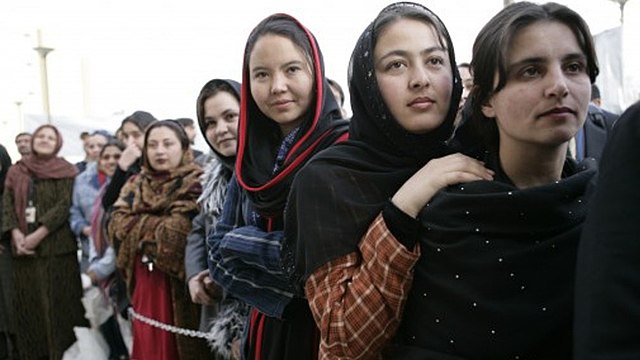The 2020 United States presidential campaign and aftermath has been hostile, intense, and exhausting. The entire spectacle has unfolded against the ominous backdrop of the worsening coronavirus pandemic, racial injustice, and a deeply divided Congress seemingly reflective of the American populace in general. Most recently, the violent storming of the U.S. Capitol by Trump supporters has proven the transition of power to be – as some predicted – drawn out and chaotic, as president-elect Joe Biden conveys his future administration’s mandates, while outgoing President Donald Trump has been impeached for the second time during his final weeks in office.
Joe Biden and Kamala Harris, the latter of whom will be the first female and first black U.S. vice-president, promised to build a White House executive team reflective of America’s shifting demographics. Their first slate of appointments included five women and four people of colour. The U.S. president-elect announced his final nominees this past week, completing a team of two dozen people that will make history if all are confirmed. He noted Friday that this will be the “first cabinet ever” to reach gender parity and include a majority of people of colour. General Lloyd Austin is poised to become the first black secretary of defense. During the Obama administration, Austin led US Central Command, served as vice chief of staff of the army, and was commanding general of US forces in Iraq.
Among the national security challenges Biden and General Austin will inherit as part of the administration’s transition is the peace agreement the United States signed with the Taliban in February 2020. That deal includes provisions for a conditional withdrawal of U.S. forces after nearly two decades at war in Afghanistan. According to the plan, the U.S. will have fully withdrawn from the country by this spring. However, the drawdown appears to have been accelerated by President Trump, who announced that the number of U.S. troops in Afghanistan would be cut to 2,500 by January 15th. The U.S. military has not halted a U.S. troop withdrawal from Afghanistan, despite a new law prohibiting further reductions without the Pentagon sending Congress an assessment of the risks. Allies are worried that the hasty withdrawal could lead to worsening violence and regional chaos, emboldening the local Islamic State affiliate to regroup.
NATO Secretary General Jens Stoltenberg warned in a statement that the early departure would risk Afghanistan, “becoming once again a platform for international terrorists to plan and organize attacks on our homelands,” saying the Islamic State, “could rebuild in Afghanistan the terror caliphate it lost in Syria and Iraq.” Senate Majority Leader Mitch McConnell called the plan “a mistake”. The withdrawals are scheduled to take place five days before Biden takes office.
Among the most contentious issues of the peace deal is women’s rights. Women’s lives were extremely restricted under Taliban rule in the late 1990s – girls could not attend school, women were not allowed to work, a woman had to be covered in a burka and was never allowed to leave home unless in the company of a male relative. Punishments for transgressions were terrifying with women being publicly flogged and, in some cases, stoned to death. Over the past two decades, women in all parts of Afghanistan have fought to participate in public and political life, and their tireless efforts have paid off. Afghan women are gaining respect and recognition as they continuously contribute to the betterment of life in the war-torn country – they are now top doctors, internationally recognized filmmakers, and government ministers. Many are women who, under the Taliban regime, were deprived of the most basic rights to education, employment and freedom of movement. The progress Afghan women have made in the years since the fall of the Taliban regime could be at risk as the U.S. accelerates troop withdrawals, leaving the defence capabilities of Afghanistan’s army compromised. Even a small number of U.S. forces can have a dramatic impact on the direction of the war.
The official Taliban line now is that women can work and be educated – but only within the boundaries of Islamic law and Afghan culture. While this sounds like an improvement from their previous position, each day women still suffer under their power. On November 10th, a 33-year old women was shot and then stabbed in the eyes by Taliban militants acting on a tip-off from her father who vehemently opposed her working outside the home.
Afghans, Americans, and other NATO alliance countries are desperately anxious for an end to the war, but it must not come at the expense of the progress Afghan women have made in the years since the fall of the Taliban – an achievement for which more than 40,000 Canadian troops fought. Biden has said he prefers a small, intelligence-driven, counterterrorism presence in Afghanistan. A strategy of maintaining a residual force — even a narrowly focused one — would require a renegotiated deal with the Taliban though, which the leadership has already rejected.
While Afghans, Americans, and other allies desire a cessation of hostilities, a durable peace in which Afghanistan’s women can enjoy the ability to live with dignity, justice and freedom is in the United States, and Canada’s best security and moral interest as well. Countries with an empowered and literate female populace tend to have fewer problems with religious fanaticism and extremism. Giving women greater access to financial assets, education, improved health care, and leadership positions have shown to be a sustainable deterrent against terrorism. Educated, prosperous, and empowered communities enable long-term dissuasion against radicalization. Thus, continuing to support and advance women’s rights in Afghanistan and elsewhere should certainly be a Western security interest moving forward.
Photo: Women of Afghanistan stand outside the U.S. Embassy in Kabul (2006), by Eric Draper via Wikipedia.
Disclaimer: Any views or opinions expressed in articles are solely those of authors and do not necessarily represent the views of the NATO Association of Canada.




